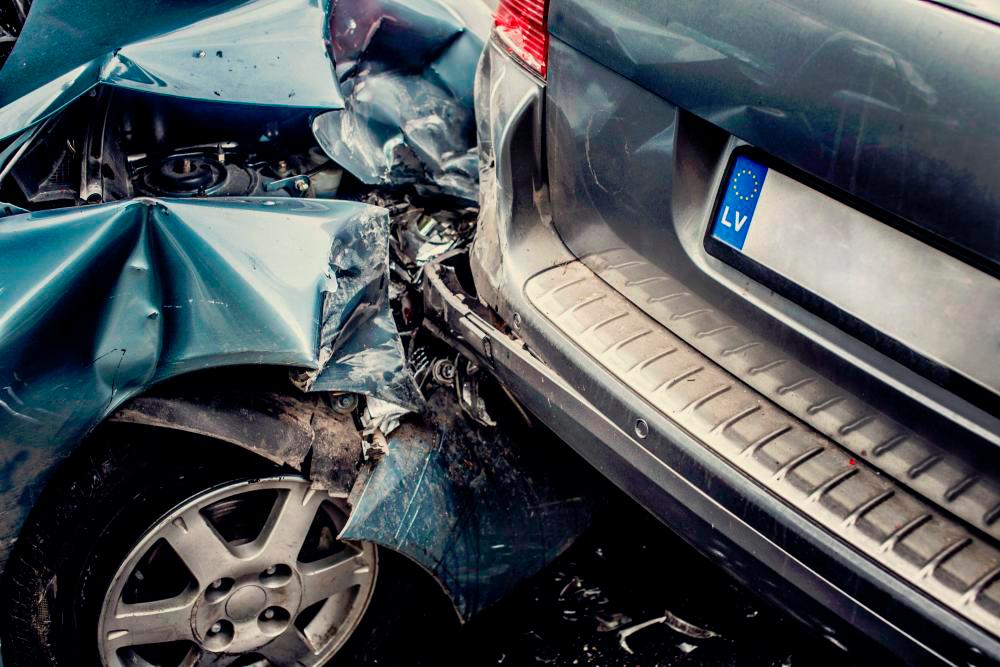PETALING JAYA: With 81,136 road crashes attributed to tailgating and a lack of driver awareness, Malaysian Institute of Road Safety Research chairman Prof Dr Wong Shaw Voon has urged motorists to prioritise safe driving habits.
The figures for tailgating were drawn from a total of 1.2 million crashes recorded between 2021 and August 2023 by the Police Traffic Investigation and Enforcement Department.
Wong said drivers must maintain proper distances, adhere to speed limits and stay calm in stressful situations to mitigate the risks associated with tailgating, a term describing motorists who follow another vehicle too closely, creating uncomfortable and often dangerous driving conditions.
“It’s a common sight on Malaysian roads, where aggressive driving behaviours such as speeding, flashing high beams, and even making gestures pressure drivers to give way.
“Tailgating not only creates stress for the driver being followed but also significantly increases the risk of rear-end collisions,” he said, adding that safe driving depends on maintaining sufficient distances to allow for reaction time in the event of sudden braking.
He warned that tailgaters often push their limits, particularly at high speeds, leaving little to no time to react if the driver in front brakes suddenly, which inevitably leads to collisions.
“This not only causes accidents but also induces panic and distress for the driver being tailgated.
“Aggressive tailgaters often exceed the 110km/h speed limit on highways, sometimes reaching speeds of 150km/h to 160km/h. This makes the situation extremely dangerous and creates the impression that the driver in front is at fault, when in reality, the tailgater is responsible.”
Universiti Putra Malaysia Road Safety Research Centre head Assoc Prof Dr Law Teik Hwa highlighted several factors contributing to tailgating in Malaysia, including an aggressive driving culture, traffic congestion, poor road infrastructure and attitudes prioritising personal convenience over road safety.
“In congested areas such as Kuala Lumpur, drivers often tailgate to reduce travel time. This behaviour is exacerbated by narrow lanes and poorly marked highways, which unintentionally encourage drivers to follow too closely.”
Law said some drivers use tailgating as a tactic to pressure others into speeding up or changing lanes, reflecting a self-centred mentality that prioritises convenience over safety.
“Tailgating not only endangers lives but also disrupts traffic flow and causes bottlenecks in congested areas by preventing safe speeds and distances. Collisions are often more severe due to insufficient braking space.”
He added that traffic laws under the Road Transport Act 1987 classify tailgating as dangerous or reckless driving, including “driving without due care and attention”.
While no specific law directly addresses tailgating, offenders face fines of up to RM300 and potential demerit points under broader regulations.
Law called for comprehensive educational campaigns to address the root causes of tailgating.
“Public awareness campaigns should emphasise the dangers of tailgating, including rear-end collisions and traffic disruptions. Use of visual tools such as infographics and videos can effectively demonstrate these risks.
“Incorporating safe driving practices into driving school curricula can help establish good habits early on. Teaching drivers the importance of maintaining safe distances and the potential consequences of tailgating is crucial.”
Wong advised motorists to stay calm when dealing with tailgaters and to prioritise safety.
He emphasised the importance of adhering to speed limits and remaining vigilant.
“Do not panic or make sudden manoeuvres such as abrupt braking or lane switching as these can lead to crashes. Instead, stay composed and assess the situation carefully based on your surroundings.
“Drivers must control their emotions and avoid letting tailgaters provoke them. Staying calm and focused ensures your safety and that of others on the road.”









